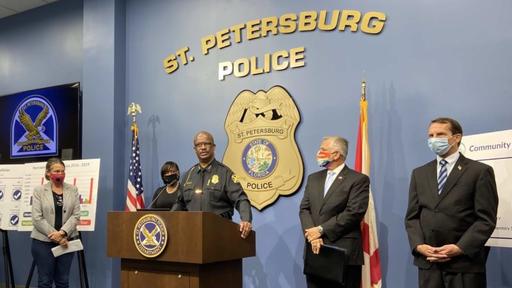OPINION: St. Petersburg police listen to protesters, hire social workers over new officers

Starting Oct. 1, the St. Petersburg Police Department will send community and social service professionals instead of armed police officers to handle nonviolent situations as part of the Community Assistance Liaison (CAL) program. The program started in response to daily protests and public outcries that began May 31 after an incident of police brutality in Minnesota led to the death of George Floyd on May 25.
The program shows protesters that the police department is listening and it has aligned itself with the protesters’ goals to reduce crime and make the city safer without the need for police. It’s a step toward a reimagined police department that all cities should be taking.
During a press conference July 9, Chief Anthony Holloway explained that these professionals would respond to calls relating to disorderly intoxication, drug overdoses, mental health or suicide crisis, disorderly juveniles, truancy, panhandling, homeless complaints and neighborhood disputes.
Holloway continued by saying that the police department is sometimes unequipped to help someone raise their kid or assist someone with a mental health issue.
“Yes, we go to a lot of training, but not enough, we’re not experts in that,” Holloway said at the press conference.
The St. Petersburg Police Department was awarded $3.1 million in June and planned to use the funds to hire 25 new officers, but will now be using the money along with the funds they set aside to match the grant to retain a social service agency to respond to the listed nonviolent calls.
Many small changes are being made to try and satisfy larger demands from Black Lives Matter activists like Quaker Oats, which owns the Aunt Jemima syrup and pancake mix brand, pledging to change the brand’s name due to the name and logo being related to a stereotype of an older Black woman. While this is a good step and should be done, these changes are demonstrative and lack meaningful impact.
The CAL program reflects a primary demand of the Black Lives Matter movement — defunding the police.
Overall, this decision is a win for everyone. Hopefully, this will not be the last time a city official enacts change to make their community safer for everyone.
Nicholas Cousineau is a senior majoring in broadcast journalism.







